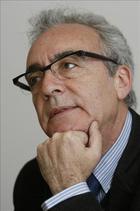
He was born in Valencia in 1946, but he moved to Madrid with his family in 1952. He was a student at the Claret school and did his pre-university studies at the Ramiro de Maeztu institute. At the end of the decade of the 60 he began the career of Philosophy and Letters, in the branch of Pure Philosophy, but left them in the third year. In 1974 he published his first novel, Cerbero es las sombras, with which he won the Sesame Award. Influenced by Dostoyevski and Kafka in his beginnings, his work is populated by ordinary characters who suddenly find themselves immersed in extraordinary situations, which often border on the fantastic: disappearances, parallel worlds, terrible anguish that can lead to madness, depression , crime, death. At the beginning of the 90s he began his journalistic work in El País and in other media. Juan José Millás is the creator of the "articuentos". The name tries to underline its main peculiarity: it is about opinion articles because they appear as such in the press, not in vain do they deal with what is happening in Spain and in the world. But, by their characteristics, they are closer to the texts of fiction, the fable or the fantastic micro story. Its objective is always to show the reverse of the plot, the true and the false. The thought, presented through humor, paradox or irony, ends up engulfing the news, so that in its final distillation there remains only a lucid critical vision of reality. On October 15, 2007, he was awarded the Planeta Prize for his autobiographical novel El mundo. On October 13, 2008 he was awarded the National Narrative Award. His works have been translated into fifteen languages, including English, French, German, Portuguese, Italian, Swedish, Danish, Norwegian and Dutch.




